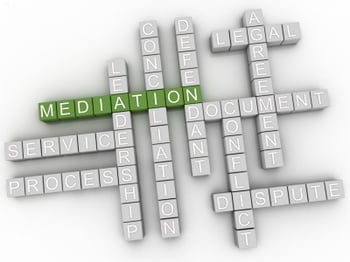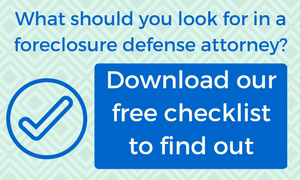 Some counties in Illinois offer mediation programs to homeowners in foreclosure, which are “designed to create an opportunity for homeowners and lenders to come together to explore mutually beneficial alternatives to foreclosure.”
Some counties in Illinois offer mediation programs to homeowners in foreclosure, which are “designed to create an opportunity for homeowners and lenders to come together to explore mutually beneficial alternatives to foreclosure.”
At the mediation conference, a homeowner and a representative from the foreclosing lender will come together with an impartial third party where alternatives to foreclosure, such as loan modification, repayment plan, short sale, and deed in lieu of foreclosure, may be discussed.
Can I Participate In Mediation?
In some counties in Illinois, it's mandatory that mediation be offered to eligible homeowners facing foreclosure.
If mediation is available in your county, the summons you receive when you are served at the start of the foreclosure lawsuit will probably contain information about it and a checklist and financial questionnaire. You will have to call the mediation coordinator within 14 days of being served to let them know you are interested in participating, and schedule a screening session or initial intake conference where your eligibility to participate can be evaluated.
 Not everyone will be eligible to participate in mediation. For example, non-owner occupied properties do not qualify for mediation.
Not everyone will be eligible to participate in mediation. For example, non-owner occupied properties do not qualify for mediation.
If you have any interest at all in keeping your home, you should follow the instructions given in your summons and get into mediation because when the court has referred your case to mediation, you don't yet have to file an answer to the complaint and the bank cannot advance the foreclosure process. That's a benefit homeowners in Illinois have that people in some other states don't. Mediation can take weeks or months, and when you're trying to save your home, you want all the time you can get.
Pre-Mediation Conference
If you are eligible for mediation, there will likely be a pre-mediation conference where you and your lender will meet and talk about your hardship and alternatives to foreclosure. You'll have to bring documentation of your finances to the conferences. If there is no agreement during the pre-mediation conferences, the case can be scheduled for full mediation.
Full Mediation
At a full mediation conference the homeowner and lender will meet with a neutral mediator and discuss options. The lender can agree to give the homeowner a loan modification, repayment plan, or other foreclosure alternative, or they can deny them. The mediator doesn't have any power to force the lender to do anything, and they don't give preferential treatment to the homeowner. They're just there to make sure the process is fair.
If no resolution is reached and the mediation process is terminated, then the homeowner will need to file an answer to the complaint within 10 days.
You Still Need a Lawyer
We've heard from homeowners who say they were told in mediation that they didn't need an attorney. That's wrong. Just because you're talking to your lender and a neutral third party about alternatives to foreclosure doesn't mean that you don't need a lawyer. You do. It's still a good idea to have an experienced professional to help you best present your situation, and assert your rights. Again, the mediator and the mediation process have no special powers.
For most people facing foreclosure, a loan modification is their only hope of saving their home. But most who apply on their own are denied. An experienced attorney can give you the best odds of success because they understand what the bank needs to see in order to approve you.
Whether you're in mediation or not, in Illinois or another state, if you want a loan modification or a short sale, having an experienced professional on your side is invaluable.
Images courtesy of Ambro, David Castillo Dominici at FreeDigitalPhotos.net










